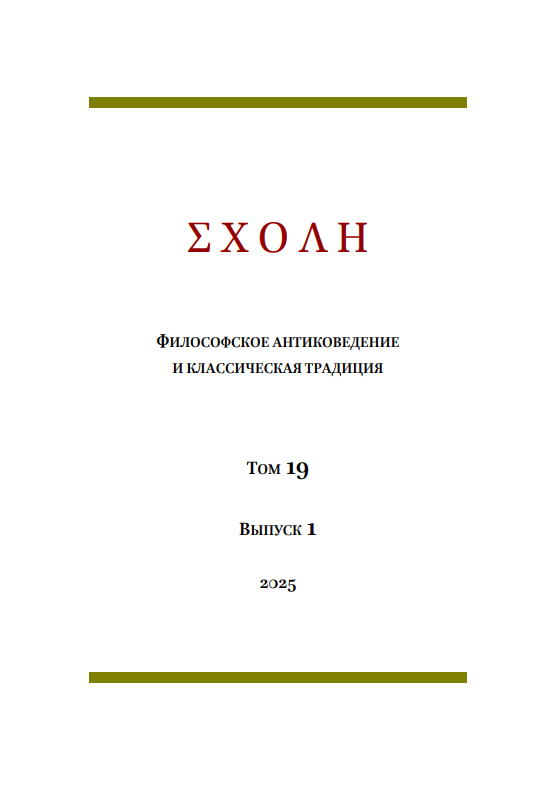Плиний Младший, речь Диотимы и типы литературного бессмертия
Pliny the Younger, Diotima’s Speech and Types of Literary Immortality
Author(s): Ilya KOLESNIKOVSubject(s): History of Philosophy, Ethics / Practical Philosophy, Ancient Philosphy
Published by: Новосибирский государственный университет
Keywords: Literary Immortality; Memory; Pliny the Younger; Plato;
Summary/Abstract: The idea of literary immortality first appears in the Homeric epics: the heroes live on in glory. Further tradition develops this motif – we must imitate our heroes or ancestors, because only in this way will they be given due honor. But another (historical) understanding of literary immortality is also developing; it aims to save the past from oblivion, not to influence the present (written culture, as opposed to oral tradition, thinks in this way). Plato takes the position of “poetic” immortality in this matter, but he considered poetry in an ethical context and seeks to select poets who have the right to educate the youth. In the Hellenistic-Roman era, the semantic accents shift, and now the author himself claims literary immortality. The idea of the author’s immortality is mixed with the usual immortality in glory and with the religious immortality of the soul (the writer becomes a minister of the muses). Pliny the Younger’s position is limited neither to two “pure” types of literary immortality (“poetical” or “historical”), nor two “mixed” types (immortality in glory and immortality of a muses’ minister). Pliny outlined a new understanding of literary immortality – immortality as an exemplary author, as Cicero was for him.
Journal: ΣΧΟΛΗ. Философское антиковедение и классическая традиция
- Issue Year: XIX/2025
- Issue No: 1
- Page Range: 205-220
- Page Count: 16
- Language: Russian

